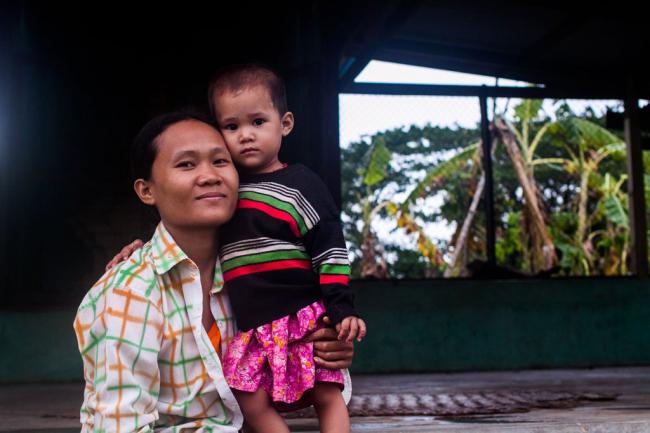
Investing in early childhood development helps communities thrive – UN-backed report
“Investing in young children is a moral, economic, and social imperative. The [Sustainable Development Goals] SDGs have provided a promising vision on children and adolescents’ health, but political will and increased investment in early childhood development are needed to ensure that the ambitious targets can be reached,” said Dr. Margaret Chan, Director-General of the UN World Health Organization (WHO), which, along with the UN Children’s Fund (UNICEF) and the World Bank, contributed and offered guidance to the series.
“Early childhood development will not only benefit the children of on Wednesday, but will have a direct impact on the stability and prosperity of nations in the future,” she added.
The three agencies highlighted that the series, “Advancing Early Childhood Development: from Science to Scale,” reveals that early childhood development interventions that promote nurturing care – health, nutrition, responsive caregiving, security and safety, and early learning – may cost as little as 50 cents per child per year, when combined with existing services such as health.
The findings underscore the importance of increased global commitment to early childhood development. Individuals are estimated to suffer a loss of about a quarter of average adult income per year, while countries may forfeit up to as much as two times their current gross domestic product expenditures on health or education. Consequences of inaction impact not only present but future generations, the agencies said.
“We now know how high the cost of inaction is, and new evidence makes clear that the time to act is now. We hope the evidence in this series will help countries reach more pregnant women and young children with preventive and promotive services that have the potential to drastically improve developmental outcomes for children as well as their adult health, well-being and economic productivity,” said series co-author, Linda M. Richter, of the Centre of Excellence in Human Development at the University of the Witwatersrand in Johannesburg, South Africa.
Research shows that a child’s brain develops faster during the first two to three years of life than at any other time in life. These early years are also a critical period of adaptability and responsiveness to interventions. When young children are deprived of nutrition, stimulation and protection, the damaging effects can produce long-term detriments for families and communities, the agencies said.
“The science and economics are clearly on the side of investing in the first 1,000 days of a child’s life, starting with a woman’s pregnancy,” said Keith Hansen, Vice President of Human Development at the World Bank Group. “The Lancet research is further proof, if more is needed, of just how important this agenda is.”
The authors stress the strong position of the health sector in providing an entry point for early childhood interventions – especially in support of nurturing care. The sector’s ability to access women and children during the critical period from conception through early childhood presents an opportunity to integrate low-cost interventions, such as WHO/UNICEF’s Care for Child Development, into existing maternal and child health and nutrition services. These have shown to help improve the quality of nurturing care and the overall development of young children, while also giving attention to the well-being of the caregiver, the agencies said.
“The science shows us that biology is not destiny – and that what children experience in the earliest days and years of life shapes and defines their futures,” said UNICEF Executive Director Anthony Lake.
“We need to turn that science into an alarm bell – because the development of millions of children is at urgent risk. Right now, 43 per cent of children in low- and middle-income countries are at risk of not achieving their cognitive potential. No country can risk losing nearly half of the brain potential of its youngest citizens – low- and middle-income countries least of all,” he added.
The series’ authors propose several ways the global community can scale up support for early childhood development services. Among the recommendations include encouraging the adoption and implementation of policies to create supportive environments for families to provide nurturing care for young children; building capacity and strengthening coordination to promote early childhood development through existing health, nutrition, education, social and child protection services; strengthening measurement and ensuring accountability for early childhood development services; increasing research, and fostering global and regional leadership and action; and expanding political will and funding through advocacy for the SDGs.
Photo: WHO/D. Rodriguez
Source: www.justearthnews.com
Support Our Journalism
We cannot do without you.. your contribution supports unbiased journalism
IBNS is not driven by any ism- not wokeism, not racism, not skewed secularism, not hyper right-wing or left liberal ideals, nor by any hardline religious beliefs or hyper nationalism. We want to serve you good old objective news, as they are. We do not judge or preach. We let people decide for themselves. We only try to present factual and well-sourced news.







